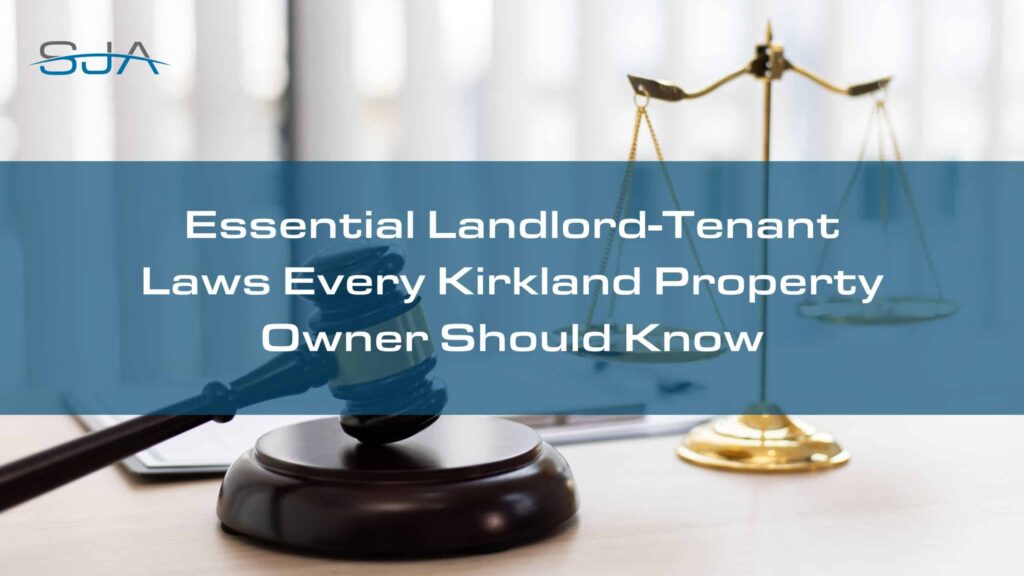Managing rental properties in Kirkland can be tricky, especially when it comes to understanding the ins and outs of landlord-tenant laws.
If you’re a property owner, staying on top of these regulations is a must to protect your investment and keep things running smoothly. Whether you’re new to the game or a seasoned pro, we’re breaking down the key rules you need to know to stay compliant and avoid any legal headaches.
Why Understanding These Laws Matters
It’s crucial to get a handle on the laws that affect your rental property. Landlord-tenant regulations are enforced at the federal, state, and local levels, so you need to be on top of them all. Ignoring these rules can lead to legal trouble, fines, and unnecessary headaches. If you’re managing your property on your own, make sure you know what’s required of you to stay in the clear.
Laws can change frequently, especially at the local level. In Kirkland, you’ll want to keep up with any new regulations to ensure your lease agreements and policies are up-to-date.
Federal-Level Laws: Fair Housing and Discrimination
At the federal level, landlords across the country, including in Kirkland, must follow laws like the Fair Housing Act and the Equal Protection Clause. These laws prevent discrimination based on race, color, religion, sex, national origin, familial status, and disability. As a landlord, it’s your job to know these protected classes and make sure your rental policies don’t violate these protections.
For tenants with disabilities, you need to provide reasonable accommodations and modifications. The Department of Housing and Urban Development (HUD) is a great resource for understanding these requirements. Consider attending local fair housing workshops to stay informed and avoid any potential issues.
State Laws: Revised Code of Washington (RCW)
In Washington, landlord-tenant laws are detailed in the Revised Code of Washington (RCW). This comprehensive guide covers everything from landlord and tenant responsibilities to procedures for handling deposits, notices, and evictions.
For instance, Washington law requires landlords to give tenants a written checklist of the property’s condition at move-in. Security deposits must be returned within 21 days after a tenant moves out, along with a detailed list of any deductions. As a Kirkland landlord, it’s crucial to understand these rules to keep your rental operations smooth and compliant.
The RCW can be a lot to digest, so we recommend breaking it down into smaller chunks. Start with the basics, like move-in and move-out procedures, and then dive deeper into other areas as needed.
Kirkland-Specific Regulations
Kirkland has its own set of rules that you need to be aware of. While it might not have as many regulations as Seattle, there are still important local ordinances to follow. For example, Kirkland has a rental inspection program that requires landlords to ensure their properties meet certain health and safety standards. Keeping track of inspection schedules and requirements is essential to avoid fines.
Local regulations can change frequently, so stay updated on any new or revised laws that affect your property. For example, Kirkland follows state guidelines for rent increases, late fees, and notices of entry, but you should always check for any city-specific updates.
Staying Informed
As a landlord in Kirkland, staying current with federal, state, and local laws is your responsibility. These regulations can change, and keeping your lease agreements and property management practices up-to-date is key to avoiding non-compliance.
If you’re unsure about any specific laws or need help navigating the legal landscape, don’t hesitate to reach out to a local property management professional. They can offer guidance and ensure you’re meeting all legal requirements.
For more information or assistance, feel free to contact us at SJA Property Management. We’re here to help!






